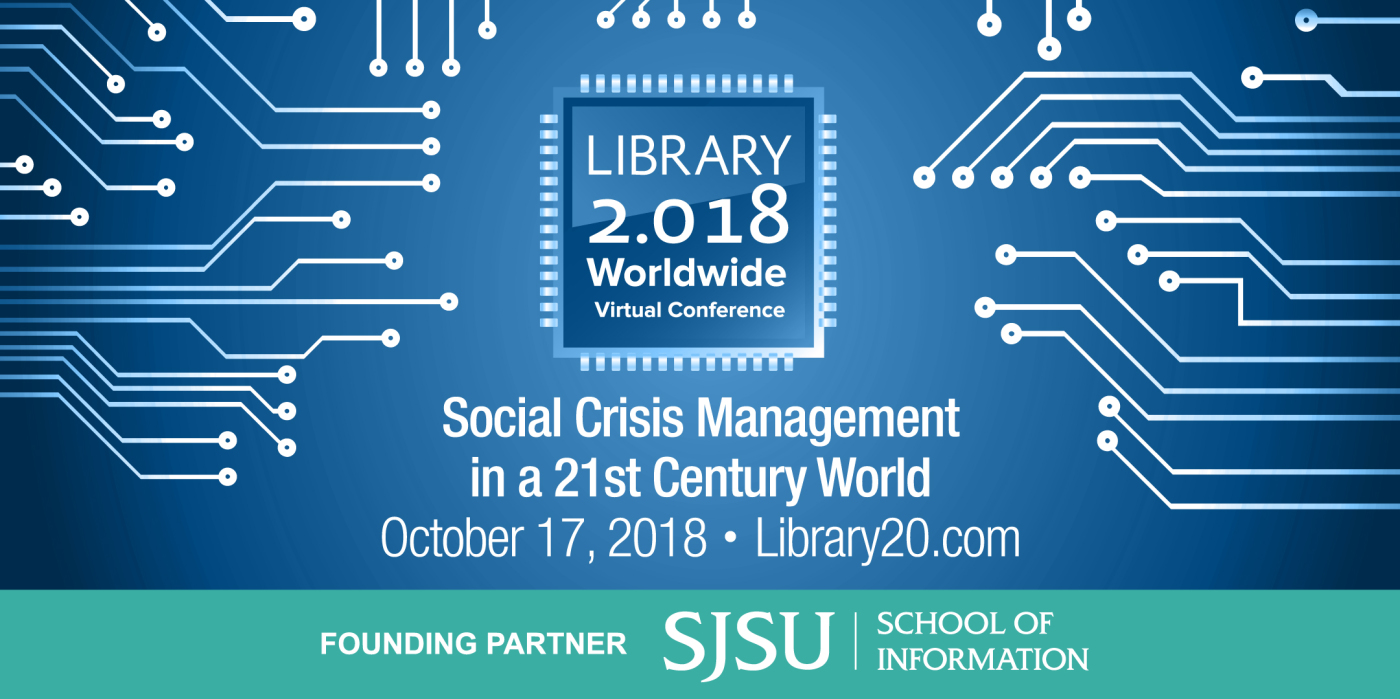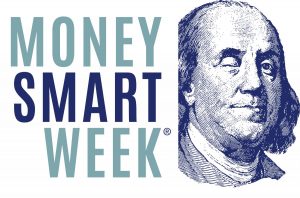Library 2.018 Social Crisis Management in a 21st Century World
By Stacy Rivas, ALASC Blogging Assistant
Along with 350 participants from all over North America, and a few around the globe, I attended the Library 2.108 virtual conference on Social Crisis Management in a 21st Century World. The conference included an opening keynote, thirteen 30-minute sessions on topics that ranged from active shooter training, healthcare, and homelessness, and a closing keynote.
The conference opened with a keynote session by Dr. Sandra Hirsh, Patty Wong (Director of Library Services for the Santa Monica Public Library), Ryan Dowd (executive Director of Hesed House in Chicago), and Madeline Ildefonso (Managing Librarian, New Americans Centers, Los Angeles Public Library). Together, they discussed how the services libraries offer have changed dramatically in recent years, with particular focus on the need for librarians to be social providers. Flexible and innovative thinking is a must as librarians work in their communities to address a variety of social needs. Patty talked about the services offered at the Santa Monica Public Library system, such as holding pop-up resource fairs on a monthly basis and providing a space and support for social workers to meet with those experiencing homelessness. While Ryan does not work in a library, he recognizes the value that they offer to communities; he urged conference attendees to “appreciate common humanity” and to “appreciate diversity” by celebrating differences, since libraries are one of the only places that bring together people of different socioeconomic levels. Madeline closed the session with a conversation about how the Los Angeles Public Library is better serving the needs of immigrants and refugees in LA through their New Americans Centers in six branches across the city.
I attended the following three sessions:
It’s Not (Just) about Transition: Librarians’ Role in Promoting Trans Affirming Healthcare
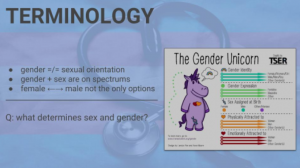 In this session, Mary Catherine Lockmiller, the health science librarian at Northern Arizona University, spoke to us about how librarians can support transgender people. For example, library staff should use correct terminology and provide resources on health issues that transgender people face. She also suggested keeping all transgender nonfiction materials up to date, purchasing and displaying quality children’s and young adult literature, and providing anonymous checkout options to patrons.
In this session, Mary Catherine Lockmiller, the health science librarian at Northern Arizona University, spoke to us about how librarians can support transgender people. For example, library staff should use correct terminology and provide resources on health issues that transgender people face. She also suggested keeping all transgender nonfiction materials up to date, purchasing and displaying quality children’s and young adult literature, and providing anonymous checkout options to patrons.
Providing Support to Library Customers with Adverse Life Challenges
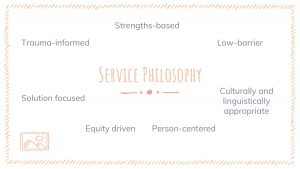 In this session, Alix Midgley, LCSW, Community Resource Specialist at the Denver Public Library, walked us through the programs at her library that support patrons experiencing a variety of adverse life changes. Her library provides direct customer support with regularly scheduled drop-in hours for one-on-one information needs, collaboration with library staff by training them on topics ranging from affordable housing to crisis de-escalation, programming that includes outreach to patrons and coffee connections for patrons and library staff, community collaboration that brings outside resources into the library, and social advocacy. Her person-centered philosophy really struck me, as she shared that “all persons are the experts in what it takes for them to thrive, so let the patron steward the direction of our work with them.”
In this session, Alix Midgley, LCSW, Community Resource Specialist at the Denver Public Library, walked us through the programs at her library that support patrons experiencing a variety of adverse life changes. Her library provides direct customer support with regularly scheduled drop-in hours for one-on-one information needs, collaboration with library staff by training them on topics ranging from affordable housing to crisis de-escalation, programming that includes outreach to patrons and coffee connections for patrons and library staff, community collaboration that brings outside resources into the library, and social advocacy. Her person-centered philosophy really struck me, as she shared that “all persons are the experts in what it takes for them to thrive, so let the patron steward the direction of our work with them.”
Meeting Some Basic Needs of SJSU Students and San Jose Citizens at the MLK Jr. Library
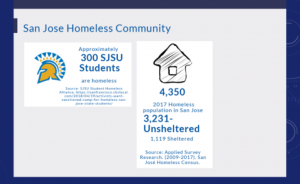 In this session, Peggy Cabrera, Environmental Librarian at SJSU and Deborah Estricher, Librarian at SJSU, shared with us how the King Library supports the needs of SJSU students and people experiencing homelessness in San Jose. For example, the King Library’s Social Workers in the Library program, launched in 2009, holds 20-minute appointments with patrons on the first and third Monday of the month. The King Library also holds collection drives and provides a Student Hunger food cart in the library.
In this session, Peggy Cabrera, Environmental Librarian at SJSU and Deborah Estricher, Librarian at SJSU, shared with us how the King Library supports the needs of SJSU students and people experiencing homelessness in San Jose. For example, the King Library’s Social Workers in the Library program, launched in 2009, holds 20-minute appointments with patrons on the first and third Monday of the month. The King Library also holds collection drives and provides a Student Hunger food cart in the library.
To close out the conference, keynote speaker Rebekkah Smith Aldrich, the Executive Director at the Mid-Hudson Library System in New York, gave an impassioned speech about sustainable thinking for the future of libraries. In order to battle a host of environmental issues, like flooding, coastal erosion, and health problems, libraries today must focus on local matters (knowing the local community and tailoring programs to their specific needs), working together, recognizing and valuing diversity, and helping all to be heard.
